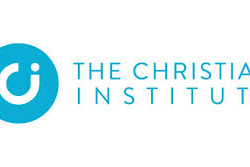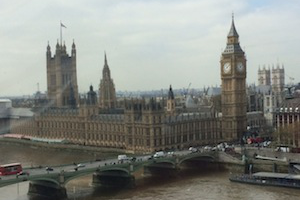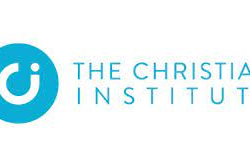Christian Institute challenges council over Relationship and Sex Education policy

Source: Christian Institute
Warwickshire County Council is on the brink of a legal challenge over what has been described as "a controversial and misleading policy" for implementing Relationship and Sex Education in primary schools under its care.
Lawyers acting on behalf of The Christian Institute have written to the Council, raising concerns over the policy's "catalogue of errors". They contend it has failed to "take into account and give proper weight" to its duties under the Equality Act 2010, the Human Rights Act 1998 and the Education Act 1996.
The Council's Relationship and Sex Education Policy for primary schools incorporates and promotes the controversial All About Me programme.
Among its false assertions are that gender identity "can be best understood as being a spectrum" and "transgender children have the right to use whichever toilet or changing room they feel most comfortable using". It encourages schools not to inform parents if their children are sharing rooms with transgender pupils and to conceal a child's transgender status from their own parents - contrary to parental rights which are protected under the Human Rights Act 1998.
Whilst making no reference to marriage, lesson materials do encourage masturbation and include "gratuitously graphic" sexual images, contrary to the Education Act 1996 and despite the lessons not being classed as sex education.
The letter warns the Council that it cannot lead schools to evade their duties under the Act "by teaching sexually explicit materials under the heading of another subject", pointing out that "if the content is sexually explicit it must be sex education" however it is labelled. "Whether a lesson constitutes sex education is not determined by how it is badged but by what is being presented", it says.
Dated 20 January, it states: "In light of these breaches, we ask you to confirm within the next 14 days that you will withdraw the Policy with immediate effect and contact all schools using the policy to make clear to them that their continued adoption of the policy could lead to them breaching the legal obligations.
"If you decide not to do so, our client will pursue a claim for judicial review of that decision on the basis of the serious legal flaws contained in the Policy which we have drawn to your attention in this letter."
The Council responded on 3 February, to say it did "not intend to provide a substantive response" to the Institute's legal and policy arguments, claiming it was undertaking an "independent review" of the programme. No timescale was given for completing the review and it made no commitment to withdraw the Policy or to warn schools that they may be breaking the law. The Institute's lawyers are requesting clarity over the nature, scope and timescale of the review and whether schools will be advised not to use All About Me until it has concluded.
Warwickshire County Council came under fire last October over its Respect Yourself website. The site included graphic descriptions of different sexual behaviours in a 47-page 'sextionary'. Following complaints, the Council removed the site to conduct a review of the content.
The letter from Liverpool based AI Law sets out detailed objections to Warwickshire's Relationship and Sex Education Policy.
Stating that the policy is likely to "mislead schools and teachers" it adds: "Having failed to define properly the circumstances in which the protected characteristic of gender reassignment applies, the Policy then erroneously asserts a series of situations where a transgender child has the right to make certain requests.
"The Policy states that transgender children have the right to use whichever toilet or changing room they feel most comfortable using. However, this is not correct." It then notes the policy pays "no regard" to the exceptions in the Equality Act for the provision of single or separate-sex services.
The letter warns that the Policy giving an absolute right for a transgender pupil to self-determine their choice of toilet and changing facilities could result in interferences with the rights of other pupils. "In some cases transgender pupils might elect to use the toilets or changing rooms of the opposite biological sex. But for many children and young people, being forced to share toilets or changing facilities with transgender pupils who retain the genitalia of the opposite sex will unacceptably interfere with their right to privacy, particularly in the case of girls," it says.
"Some girls in primary school may already have started their periods and will be particularly self-conscious. It cannot be right for them to have to share facilities with those who are biologically boys."
It quickly adds: "Such interferences with the rights of non-transgender pupils are disproportionate and cannot be justified, not least because there is no law which gives a transgender child the right to use the toilet or changing facilities of their choice."
Referring to the Council's Public Sector Equality Duty under Section 149 of the Equality Act 2010 it warns: "By failing to balance the rights of trans-pupils with the rights of others, the Policy demonstrates a woeful disregard for the need to foster good relations between trans-pupils and others who do not share the protected characteristic of gender reassignment."
Adding: "Similarly, the Policy does not foster good relations between those who share a particular faith or belief and others who do not share it. Rather, the Policy sends a clear signal that those who may hold to beliefs about gender identity that do not align with this document are not worthy of respect. No attempt is made to promote understanding."
The letter sent on behalf of The Christian Institute also criticises the Council for advocating that schools should withhold information from parents should a child want to explore their gender at school.
"The Policy also states that transgender children have the right to decide who knows they are transgender, when they tell people and how to tell people. But concealing information about a child's transgender status could give rise to significant safeguarding and privacy breaches."
Of particular concern is the issue of transgender pupils "sharing sleeping accommodation with members of the opposite biological sex…without the parents of any of the children being aware. This could seriously undermine a school's duty of care to students."
The letter reminds the Council "that parents have the right to be kept informed about matters relating to their child's development and wellbeing, particularly when the child is of primary school age."
However it says the Council's policy "will discourage schools from notifying parents about potentially life-changing decisions which the child is making and cause schools to conspire in keeping a child's transgenderism from the parents."
It goes on: "Keeping such information from parents will seriously undermine parental authority. It trespasses into a space which is the proper responsibility of the family and in relation to matters on which the parents might have strong religious or philosophical convictions."
"The silence in the Policy about the rights and responsibilities of parents will cause schools to breach the Convention rights of parents."
The letter also warns Warwickshire Council that its approach raises the spectre of compelled speech. This argument was successfully used in defending Ashers Baking Company against the Equality Commission for Northern Ireland in the so-called gay cake case. That case was supported by The Christian Institute's Legal Defence Fund.
"Whilst all transgender pupils must be protected from bullying and unlawful discrimination, schools have a duty not to put staff and other pupils in a position where they [are] forced to use words with which they profoundly disagree, unless weighty justification can be shown for doing so. For many people, using a name or pronoun which does not denote a person's biological sex amounts to speaking a falsehood, particularly in relation to minors because they cannot legally change sex.
"Imposing a blanket requirement on all staff and pupils to refer to a transgender pupil in that pupil's acquired gender identity will give rise to compelled speech."
It further criticises the Council for a policy "which seems aimed at indoctrinating children with the ideological tenets of a particular radical gender theory which teaches that a person's sex is not a biological reality determined at conception but an arbitrary 'assignment' which can be readily changed."
John Denning, Education Officer at The Christian Institute, commented: "Warwickshire County Council has been reluctant to engage with parents or us about these serious concerns.
"Either by design or error the Council has corrupted and misapplied equality and education law. Consequently, the Council is failing to properly discharge its responsibilities; a failure compounded by advising schools and teachers incorrectly about their duties. This cannot continue."
He added: "The Council is utterly failing to balance the rights of trans-pupils with the rights of others. At the same time, it has commissioned materials for use with small children that are highly inappropriate, radically ideological, yet inexplicably, completely silent on marriage."
Mr Denning concluded: "The Council must withdraw this deeply flawed policy while it addresses its catalogue of errors.
"As it does so it must rid itself of the notion that young children somehow want or need adult ideas forced upon them or that it is both legal and desirable to keep their parents in the dark about it. There are vital safeguarding issues at stake here. To refuse to admit there is anything wrong with the policy would seem to be putting at risk the well-being of the very children they have a duty to protect."
A selection of Warwickshire County Council's All About Me classroom materials, lesson plans and guidance are available at: www.christian.org.uk/rse-in-warwickshire/
The Christian Institute is a non-denominational registered charity, which seeks to promote the Christian faith in the UK. It was founded in 1991 by Christian church leaders and professionals and it currently campaigns on a range of issues including marriage and the family, child protection, pro-life concerns, drugs, religious liberty and education, as well as Christianity and the constitution.


















